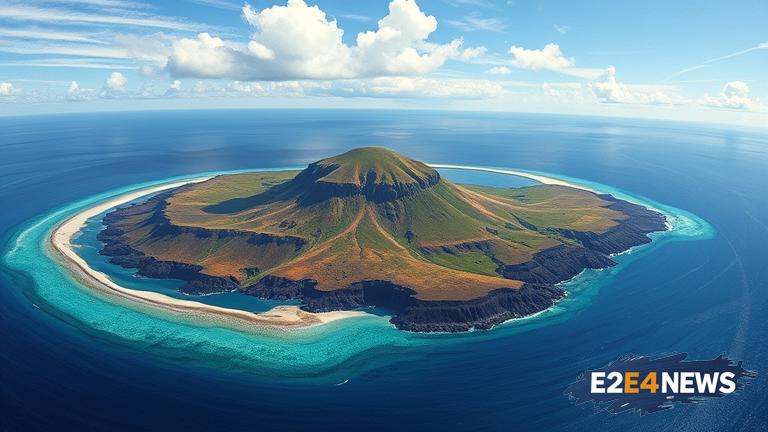A team of Australian researchers has made a remarkable discovery on Heard Island, a remote and inhospitable island in the Southern Ocean. The team, led by scientists from the University of Tasmania, has been conducting a comprehensive study of the island’s ecosystem and has uncovered a unique and untouched world that has been hidden for centuries. Heard Island, which is located about 4,000 kilometers southwest of Perth, is one of the most remote and inaccessible places on Earth. The island is volcanic in origin and is home to a diverse range of flora and fauna that are found nowhere else on the planet. The researchers used a combination of satellite imagery, aerial photography, and on-the-ground surveys to map the island’s terrain and identify areas of high conservation value. They found that the island is home to a number of unique and endemic species, including several types of plants, birds, and insects that are found nowhere else on Earth. The team also discovered a number of previously unknown glaciers, rivers, and lakes, which provide a habitat for a range of aquatic species. One of the most significant discoveries made by the team was the presence of a large and intact ecosystem that has been untouched by human activity. The ecosystem is characterized by a diverse range of plant and animal species, and is thought to be one of the most pristine and untouched ecosystems on the planet. The researchers believe that the ecosystem on Heard Island has been preserved due to the island’s remote location and the lack of human activity. The team used a range of techniques, including DNA sequencing and radiocarbon dating, to study the island’s ecosystem and understand how it has evolved over time. They found that the island’s ecosystem has been shaped by a combination of geological and climatic factors, including volcanic eruptions, sea level changes, and shifts in the Earth’s climate. The researchers also discovered that the island is home to a number of unique and endemic microorganisms, which are found in the soil, water, and air. These microorganisms play a critical role in the island’s ecosystem, and are thought to be responsible for the unique chemical and biological properties of the island’s environment. The discovery of the ecosystem on Heard Island has significant implications for our understanding of the natural world and the impact of human activity on the environment. The researchers believe that the ecosystem on Heard Island provides a unique opportunity to study the natural world in a pristine and untouched state, and to gain insights into the evolution and diversity of life on Earth. The team’s findings have been published in a number of scientific papers, and have attracted international attention and interest. The discovery of the ecosystem on Heard Island is also significant for conservation efforts, as it highlights the importance of preserving and protecting unique and untouched ecosystems. The researchers are calling for the island to be protected and conserved, and for further research to be conducted to understand and manage the ecosystem. The Australian government has already taken steps to protect the island, and has established a number of conservation measures to preserve the ecosystem. The discovery of the ecosystem on Heard Island is a significant achievement for Australian researchers, and highlights the country’s commitment to scientific research and conservation. The team’s findings are also a reminder of the importance of preserving and protecting our natural environment, and of the need to take action to mitigate the impacts of human activity on the planet.





